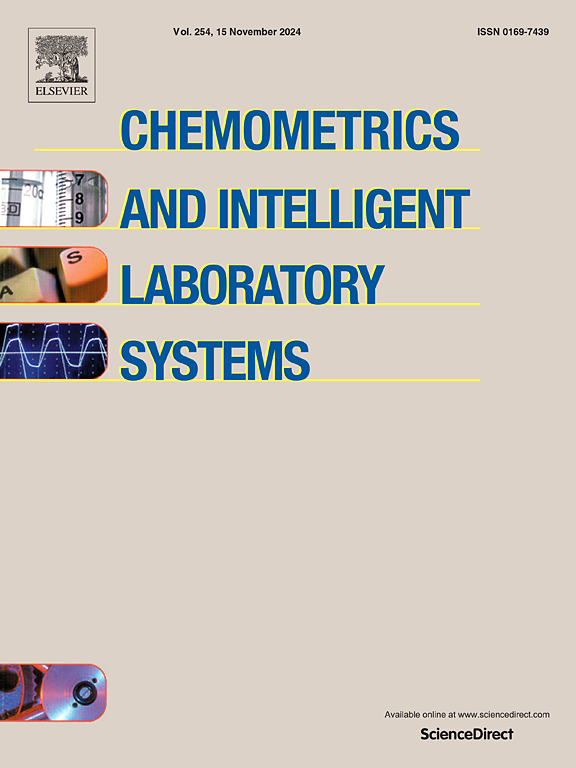Robust adaptive control for nonlinear discrete-time systems based on DE-GMAW
IF 3.7
2区 化学
Q2 AUTOMATION & CONTROL SYSTEMS
Chemometrics and Intelligent Laboratory Systems
Pub Date : 2024-11-23
DOI:10.1016/j.chemolab.2024.105274
引用次数: 0
Abstract
Gas Metal Arc Welding (GMAW) is a critical process in manufacturing, known for its efficiency and versatility. The double-electrode GMAW (DE-GMAW) technique further enhances these attributes, offering superior welding speed and improved melting effects. However, controlling the DE-GMAW process effectively remains a complex challenge due to the nonlinear and dynamic nature of the system. The process involves intricate interactions between electrical, thermal, and mechanical phenomena, resulting in highly nonlinear behavior. Variations in material properties, environmental conditions, and external disturbances can adversely affect the welding process. Moreover, traditional control methods often fail to account for unmodeled dynamics and modeling errors, leading to performance degradation and potential instability. To address these challenges, this paper introduces a robust adaptive control scheme tailored for DE-GMAW systems, which combines online projection estimation identification and pole placement strategy at the same time to compensate for parameter uncertainties, external disturbances, and unmodeled dynamics. Simulation examples in welding process are carried out to demonstrate the effectiveness of the proposed robust adaptive control scheme.
基于 DE-GMAW 的非线性离散时间系统鲁棒自适应控制
气体金属弧焊(GMAW)是制造业中的一项重要工艺,以其高效性和多功能性而著称。双电极 GMAW(DE-GMAW)技术进一步增强了这些特性,焊接速度更快,熔化效果更好。然而,由于系统的非线性和动态特性,有效控制 DE-GMAW 过程仍然是一项复杂的挑战。该工艺涉及电、热和机械现象之间错综复杂的相互作用,导致高度非线性行为。材料特性、环境条件和外部干扰的变化会对焊接过程产生不利影响。此外,传统的控制方法往往无法考虑未建模的动态和建模误差,从而导致性能下降和潜在的不稳定性。为应对这些挑战,本文介绍了一种专为 DE-GMAW 系统定制的鲁棒自适应控制方案,该方案同时结合了在线投影估计识别和极点放置策略,以补偿参数不确定性、外部干扰和未建模动态。通过焊接过程中的仿真实例,证明了所提出的鲁棒自适应控制方案的有效性。
本文章由计算机程序翻译,如有差异,请以英文原文为准。
求助全文
约1分钟内获得全文
求助全文
来源期刊
CiteScore
7.50
自引率
7.70%
发文量
169
审稿时长
3.4 months
期刊介绍:
Chemometrics and Intelligent Laboratory Systems publishes original research papers, short communications, reviews, tutorials and Original Software Publications reporting on development of novel statistical, mathematical, or computer techniques in Chemistry and related disciplines.
Chemometrics is the chemical discipline that uses mathematical and statistical methods to design or select optimal procedures and experiments, and to provide maximum chemical information by analysing chemical data.
The journal deals with the following topics:
1) Development of new statistical, mathematical and chemometrical methods for Chemistry and related fields (Environmental Chemistry, Biochemistry, Toxicology, System Biology, -Omics, etc.)
2) Novel applications of chemometrics to all branches of Chemistry and related fields (typical domains of interest are: process data analysis, experimental design, data mining, signal processing, supervised modelling, decision making, robust statistics, mixture analysis, multivariate calibration etc.) Routine applications of established chemometrical techniques will not be considered.
3) Development of new software that provides novel tools or truly advances the use of chemometrical methods.
4) Well characterized data sets to test performance for the new methods and software.
The journal complies with International Committee of Medical Journal Editors'' Uniform requirements for manuscripts.

 求助内容:
求助内容: 应助结果提醒方式:
应助结果提醒方式:


